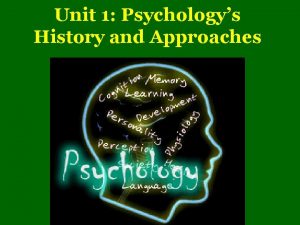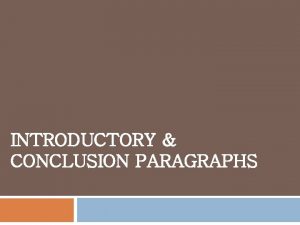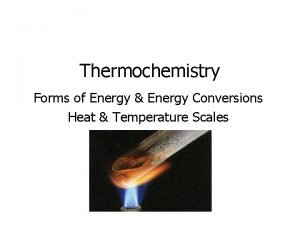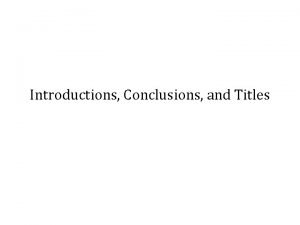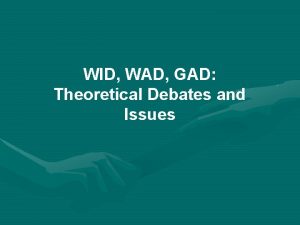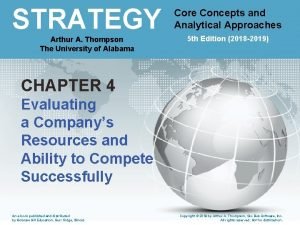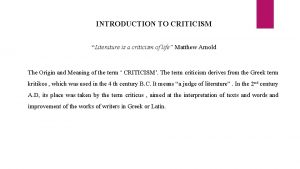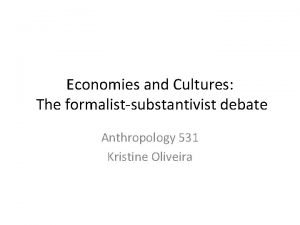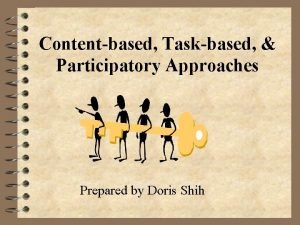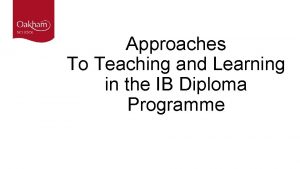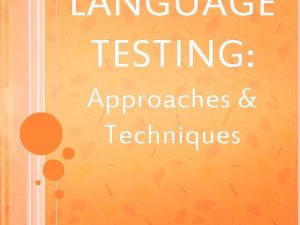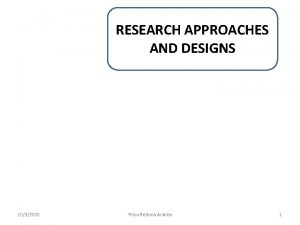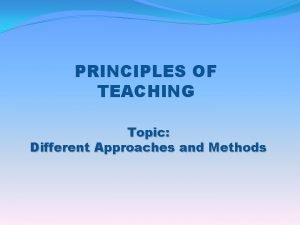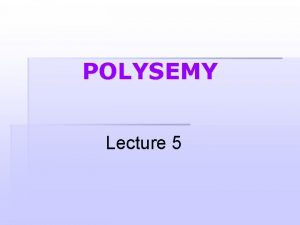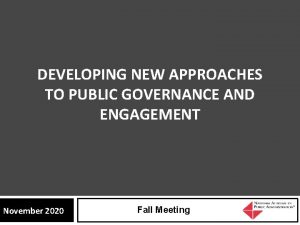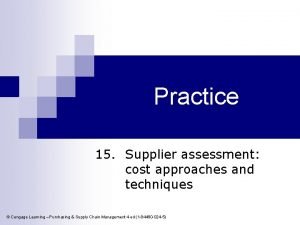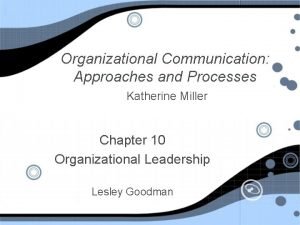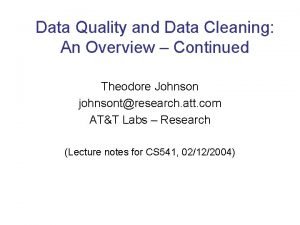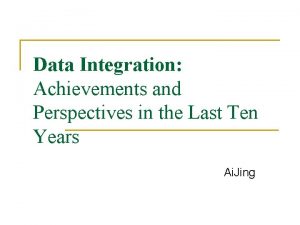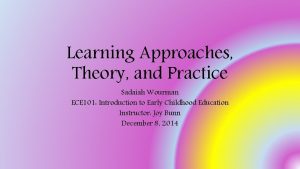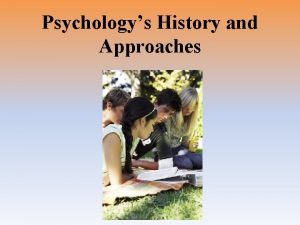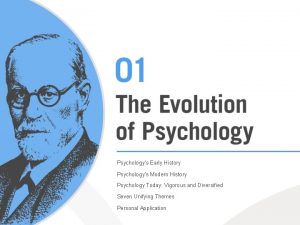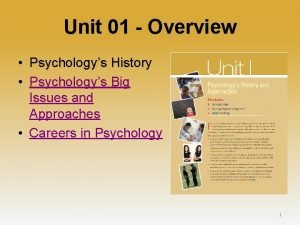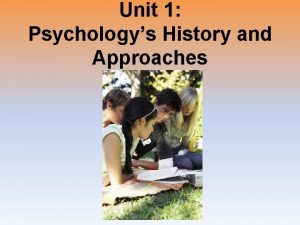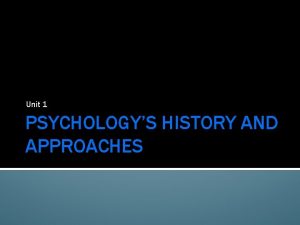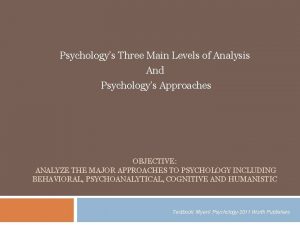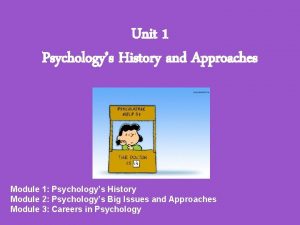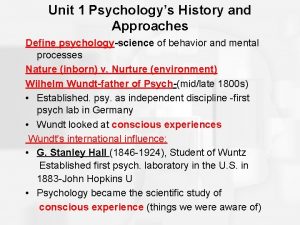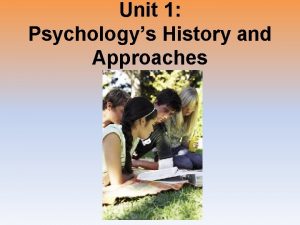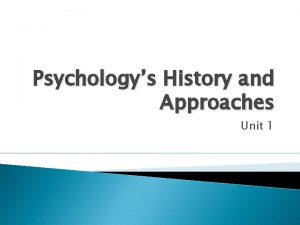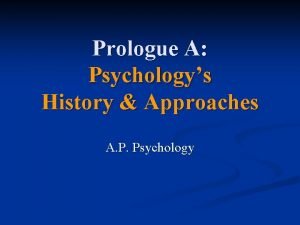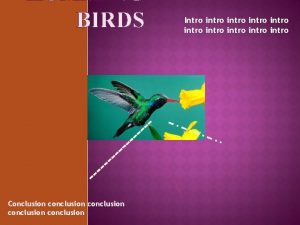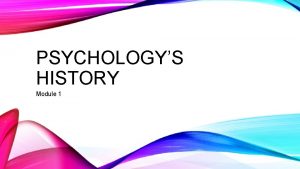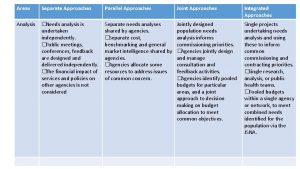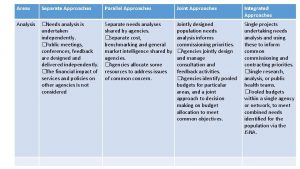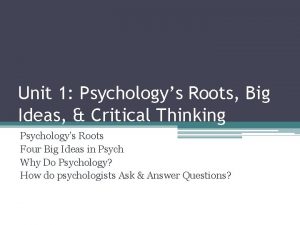Unit I Psychologys History and Approaches Intro to






























- Slides: 30

Unit I: Psychology’s History and Approaches

Intro to Psychology: the science of behavior and mental processes “Once upon a time, on a planet in this neighborhood of the universe, there came to be people. Soon thereafter, these creatures became intensely interested in themselves and in one another…” -Myers, 2 nd Edition

Prescientific Psychology • Archaeological and anthropological evidence indicates early humans utilized trephination. • Trephination- surgical procedure in which a hole is drilled or scraped into the skull • Origins- Stone Age (c. 2. 5 million BCE- c. 2000 BCE) • Believed Purpose- to release the evil spirits causing disorder in the body


Prescientific, cont’d. • Hebrew scholars link the mind to the body; however, indicate that the heart thinks and the bowels feel • Greece: • Socrates (469 -399 BCE) and Plato (428 -348 BCE) conclude the mind is separable, therefore, knowledge is innate • Through observation, Aristotle (384 -322 BCE) refutes this claim, determining that knowledge grows from experience stored in memory

Prescientific, cont’d. • René Descartes (1595 -1650)- France • The mind is distinct from the body and can survive death (Socrates/Plato) • Animal studies- dissections conclude that brain fluid contains “spirits” which flow from the brain to the muscles, creating movement • Memories form as experiences open pores in the brain (where the “spirits” also flow)

Prescientific, cont’d. • Francis Bacon (1561 -1626)- Britain • Influences modern day experimentation in psychological science • “the human understanding… easily supposes a greater degree of order and equality in things than it really finds” (Novum Organuum) • John Locke (1632 -1704)-Britain • Composes An Essay Concerning Human Understanding • The mind is a tabula rasa (“blank slate”) on which experience writes Ideas help form modern empiricismwhat we know comes from experience; observation and experimentatio n enable scientific knowledge

Psychological Science is Born Until the 1920 s, psychology is classified as “the science of mental life. ” *AP Tip: Focus on the significance of an individual’s accomplishments; you are more likely to encounter the meaning of a finding rather than the founder on the AP Exam.

Psychological Science is Born • Wilhelm Wundt • Credited with developing the first psychological laboratory in 1879 • Developed an apparatus that measured the time between hearing a sound and pressing a telegraph key (measured when sound occurred v. conscious awareness of sound) • Led to the development of different branches of psychology: structuralism, functionalism, and behaviorism, as well as the schools of thought Gestalt psychology and psychoanalysis

Structuralism: Thinking about the mind’s structure • Edward Bradford Titchener • Introduced structuralism while at Cornell University • Engaged people in self-reflective introspection and trained them to report their experience • Proved somewhat unreliable as results vary based on the individual and experience • Structuralism: uses introspection to reveal the structure of the human mind

Functionalism: Thinking about the mind’s functions • William James • Determined it would be more beneficial to consider the evolved functions of thoughts and feelings • Thinking is what the brain does, but why? • Heavily influenced by Darwin’s evolutionary theory (ie. Thinking developed because it was adaptive) • Functionalism: explored how mental and behavioral processes function and enable the organism to adapt, survive, and flourish • James would later go on to publish the first psychology textbook, Principles of Psychology

Women in Early Psychology • William James, cont’d. • Later, as a Harvard professor, he admitted Mary Whiton Calkins into his graduate seminar, who went on to become a distinguished memory researcher and APA’s first female president in 1905, although she never received her degree • Margaret Floy Washburn • Received the first female psychology Ph. D. and became the second female APA president in 1921 • She was barred from joining the organization of experimental psychologists developed by Titchener (who was her graduate advisor)

Experimental Psychology • The study of behavior and thinking using the experimental method • Titchener founds the original organization based on the initial ideals of Wundt • Employs human participants and animal subjects

Psychological Science Develops The 20 th century evolution that leads to psychology’s definition as the science of behavior and mental processes

Developing Modern Psychology • Sigmund Freud - Austria • Emphasized the ways emotional responses to childhood experiences and unconscious thought processes affect behavior (Freudian psychology) • (continued to emphasize introspection as a psychological process)

Redefining Psychology • John B. Watson (and later B. F. Skinner)American • Science is rooted in observation • Sensation, feelings, and thoughts cannot be observed, but behavior can be as individual’s respond to situations • Behavior is influenced by learned associations, through conditioning Behaviorism: the view that psychology (1) should be an objective science and (2) studies behavior without reference to mental processes (modern research psychologists today generally agree with (1) but not (2))

Humanistic Psychology • Carl Rogers and Abraham Maslov. American • Found Freudian psychology and behaviorism limiting • Drew attention to ways that environmental influences can nurture or limit growth potential, and to the importance of having needs for love and acceptance satisfied • Humanistic psychology: emphasized the growth potential of healthy people

The Cognitive Revolution (1950 s) • Led the field back to its early interest in mental processes • Scientifically explores the way we perceive, process, and retain information • Cognitive Neuroscience: the interdisciplinary study of the brain activity linked with cognition (including perception, thinking, memory, and language) • Trey Was Here

Psychology’s Three Main Levels of Analysis Biopsychosocial Approach: considers the influence of the above levels of analysis

Psychology’s Approaches Perspective Focus Sample Questions Behavioral How we learn observable responses How do we learn to fear particular objects or situations? What is the most effective way to alter our behavior, say, to lose weight? Biological How the body and brain enable emotions, memories, and sensory experiences; how genres combine with environment to influence individual differences How to pain messages travel from the hand to the brain? How is blood chemistry linked with moods and motives? To what extent are traits such as intelligence, personality, sexual orientation, and depression attributable to our genes? To our environment? Cognitive How we encode, process, store, and retrieve information How do we use information in remembering? Reasoning? Solving problems? Evolutionary How the natural selection of traits has promoted the survival of genes How does evolution influence behavior tendencies? Humanistic How we meet our needs for love and acceptance and achieve self-fulfillment How can we work toward fulfilling our potential? How can we overcome barriers to our personal growth? Psychodynamic How behavior springs from unconscious drives and conflicts How can someone’s personality traits and disorders be explained by unfulfilled wishes and childhood traumas? Social-Cultural How behavior and thinking vary across situations and How are we alike as members of one human family? How do we differ as products of our environment?

Psychology’s Subfields • Cognitive psychology: the scientific study of all the mental activities associated with thinking, knowing, remembering, and communicating • Evolutionary psychology: the study of the evolution of behavior and mind, using principles of natural selection • Psychodynamic psychology: studies how unconscious drives and conflicts influence behavior, and uses that information to treat people with psychological disorders • Social-cultural psychology: the study of how situations and cultures affect our behavior and thinking • Psychometrics: the scientific study of the measurement of human abilities, attitudes, and traits

Basic Research Subfields • Basic Research: pure science that aims to increase the scientific knowledge base • Developmental psychology: studies physical, cognitive, and social change throughout the life span • Educational psychology: the study of how psychological processes affect and can enhance teaching and learning • Personality psychology: the study of an individual’s characteristic pattern of thinking, feeling, and acting • Social psychology: the study of how we think about, influence, and relate to one another

Applied Research Subfields • Applied Research: scientific study that aims to solve practical problems • Industrial-organizational (I/O) psychology: the application of psychological concepts and methods to optimizing human behavior in workplaces • Human factors psychology: An I/O subfield that explores how people and machines interact and how machines and physical environments can be made safe and easy to use. • Counseling psychology: assists people with problems in living (often related to school, work, or marriage) and in achieving greater wellbeing.

• Clinical psychology: a branch of psychology that studies, assesses, and treats people with psychological disorders • Psychiatry: a branch of medicine dealing with psychological disorders; practiced by physicians who sometimes provide medical treatment as well as psychological therapy • Positive psychology: the scientific study of human functioning, with goals of discovering and promoting strengths and virtues that help individuals and communities to thrive. • Community psychology: studies how people interact with their social environments and how social institutions affect individuals and groups.

Careers in Psychology • Cognitive Psychologists: study thought processes and focus on such topics as perception, language, attention, problem solving, memory, judgement and decision making, forgetting, and intelligence. • Developmental Psychologists: conduct research on age-related behavioral changes and apply their scientific knowledge to educational, child-care, policy, and related settings • Educational Psychologists: are interested in the psychological processes involved in learning

• Experimental Psychologists: a diverse group of scientists who investigate a variety of basic behavioral processes in humans and other animals • Psychometric and Quantitative Psychologists: study the methods and techniques used to acquire psychological knowledge • Social Psychologists: study how our beliefs, feelings, and behaviors are affected by and influence other people

Applied Research Subfields • Forensic Psychologists: conduct research on the interface of law and psychology, help to create public policies related to mental health, help law-enforcement agencies in criminal investigations, or consult on jury selection and deliberation policies • Health Psychologists: help individuals lead healthier lives by designing, conducting, and evaluating programs to stop smoking, lose weight, improve sleep, manage pain, etc. • I/O Psychologists: study the relationship between people and their working environments

• Neuropsychologists: investigate the relationship between neurological processes (structure and function of the nervous system) and behavior. • Rehabilitation Psychologists: researchers and practitioners who work with people who have lost optimal functioning after an accident, illness, or other event • School Psychologists: involved in the assessment of and intervention for children in educational settings • Sport Psychologists: study the psychological factors that influence, and are influenced by, participation in sports and other physical activities

The Helping Professions • Clinical Psychologists: promote psychological health in individuals, groups, and organizations • Can specialize in a specific disorder or treat a range of disorders • Community Psychologists: move beyond focusing on specific individuals and deal with broad problems of mental health in community settings • Counseling Psychologists: help people adjust to life transitions or make lifestyle changes

Unit I Key Terms • • • Empiricism Structuralism Functionalism Experimental Psychology • • • Behaviorism Humanistic Psychology • Cognitive Neuroscience Psychology Nature-nurture issue Natural selection Levels of analysis Biopsychosocial approach • • • Behavioral psychology • Cognitive psychology • Evolutionary psychology • • Psychodynamic psychology • Social-cultural psychology • Psychometrics • Basic research • Developmental • psychology • Educational psychology • Personality psychology Biological psychology Social psychology Applied research I/O psychology Human factors psychology Counseling psychology Clinical psychology Psychiatry Positive psychology Community psychology Testing effect SQ 3 R
 Unit 1 psychology's history and approaches
Unit 1 psychology's history and approaches How would bivariate data best be displayed?
How would bivariate data best be displayed? Government study guide unit 1
Government study guide unit 1 Unit 10, unit 10 review tests, unit 10 general test
Unit 10, unit 10 review tests, unit 10 general test Intro and conclusion paragraphs
Intro and conclusion paragraphs And the continuance of their parents' rage modern english
And the continuance of their parents' rage modern english Romeo and juliet essay body paragraphs
Romeo and juliet essay body paragraphs Thermochemistry conversions
Thermochemistry conversions Titles for introductions
Titles for introductions Wad approach
Wad approach A company's resources and capabilities represent
A company's resources and capabilities represent Semantic structure of the word
Semantic structure of the word Intrinsic and extrinsic approach to literature
Intrinsic and extrinsic approach to literature Formalism in economic anthropology
Formalism in economic anthropology Content based task based and participatory approaches
Content based task based and participatory approaches Health promotion approach
Health promotion approach Ib approaches to learning
Ib approaches to learning Structuralism in psychology
Structuralism in psychology Mode of discourse in register
Mode of discourse in register Experimental research design types
Experimental research design types Direct or expository approach
Direct or expository approach Historical changeability of semantic structure
Historical changeability of semantic structure Ap psychology module 2 review
Ap psychology module 2 review Develop new approaches to public governance and engagement
Develop new approaches to public governance and engagement Cost approaches and techniques in supplier assessment
Cost approaches and techniques in supplier assessment Organizational communication: approaches and processes
Organizational communication: approaches and processes Data quality and data cleaning an overview
Data quality and data cleaning an overview Data integration problems approaches and perspectives
Data integration problems approaches and perspectives Pricing considerations and approaches
Pricing considerations and approaches Learning approaches, theory, and practice
Learning approaches, theory, and practice Linguistics is descriptive not prescriptive
Linguistics is descriptive not prescriptive
